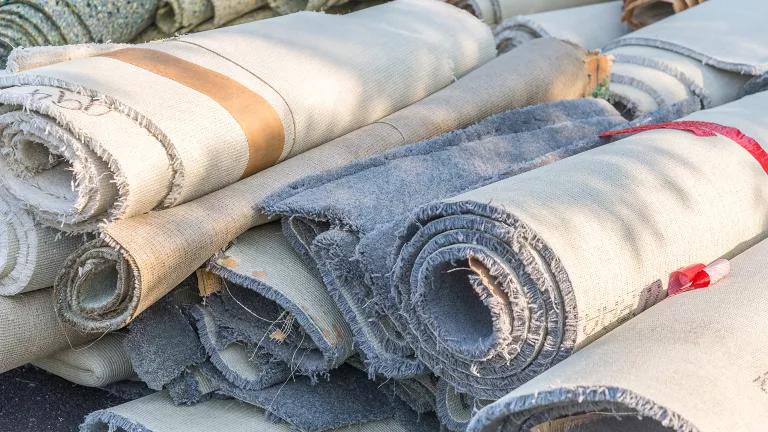NY Bills Would Ban Harmful PFAS in Clothes, Other Products
The use of PFAS is not worth the risk of cancer, kidney, or liver damage, interference with vaccine uptake, or the myriad other serious health risks the chemicals are associated with.

Update, 2023: A bill to ban toxic “forever” PFAS chemicals in clothes, was signed into law by Governor Hochul. NY joins California in banning PFAS in apparel. These chemicals are used for water and stain resistance in clothing, but are not necessary, as multiple alternative treatments, materials, and cleaning options exist. Many leading clothing companies have already eliminated or have committed to removing these harmful chemicals from their products, including leading brands like Levi’s, Patagonia, Gap, Jack Wolfskin, Zara, and H&M. New York and California’s actions will have impacts throughout the supply chain, reducing PFAS exposures from production to disposal. Governor Hochul’s signature on the bill gives us another reason to celebrate the new year!
Update, May 25, 2022: Good news! The New York State legislature has passed a bill banning PFAS in everyday apparel. Our partners at JustGreen Partnership and Clean & Healthy New York have led advocacy on the bill, with NRDC's support.
PFAS are a class of chemicals that are harmful to health and the environment, and they should be eliminated from the products that come into our homes and workplaces whenever possible, especially when the products spend significant times in our homes or on our person. In addition, the manufacture, use, and disposal of products containing PFAS can result in water pollution. PFAS has contaminated the drinking water of millions of Americans across the country, including in New York (federal monitoring data show contamination of NY public water systems serving over 1.8 million people). Communities with PFAS-contaminated water face high costs for remediation and cleanup.
That’s why NY has previously acted to eliminate PFAS in firefighting foam and paper-based food packaging. It’s time to take the next step and eliminate other unnecessary uses of PFAS.
Assemblymember Zebrowski has introduced a bill (bill number pending) that would phase out PFAS in a number of product categories where PFAS are not needed: outdoor apparel and textiles, water and stain resistance treatments for fabrics, rugs, cookware, ski wax, paint, and cleaning products. The legislature should take swift action to pass this and other bills phasing out PFAS, such as the bills covering personal care products and everyday apparel.
Clothes and textiles are an example of a major and unnecessary use of PFAS, used to provide stain and water resistance. Such use is not worth the risk of cancer, kidney or liver damage, interference with vaccine uptake, or the myriad other serious health risks PFAS are associated with.
PFAS are called “forever” chemicals because they are extremely resistant to breakdown and therefore stick around in the environment for a long time. They move around easily through the environment, making them difficult to control. They also accumulate in the environment and our bodies. Virtually all Americans have PFAS in their bodies. PFAS are released into the environment when products containing them, including clothes and textiles, are manufactured, used, cleaned, and disposed of. New Yorkers are exposed to them when they work with PFAS or PFAS-containing products, use PFAS-containing products in their homes, consume food and beverages stored in PFAS-containing packaging, drink PFAS-contaminated water, and breathe PFAS pollution in the air.
And just because PFAS are used somewhere else in the world does not mean that we won’t be exposed to them. A recent article highlights how PFAS cycle through ground, air, and water and how PFAS in the ocean can result in significant air pollution when waves crash on the shore.
For the clothing and textile products covered by these bills, PFAS’ functionality is simply not needed or provides minimal additional value given the potential harm. Many leading brands in the clothing and textile sectors covered by the bills— brands like Levi’s, Gap, H&M, Puma, Keen, Osprey, Patagonia, Jack Wolfskin, Ikea, and Zara—have either eliminated or made commitments to eliminate PFAS in their products.
To protect our health and drinking water, the legislature should act to eliminate PFAS wherever possible and should advance Assemblymember Zebrowski’s bill and the other bills phasing out harmful PFAS in products.




